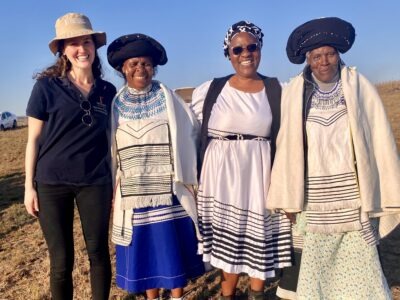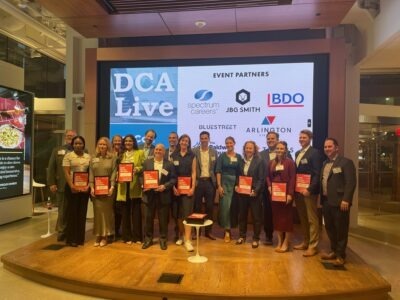In today’s vibrant and competitive business environment, the importance of participating in the new global economy cannot be overemphasized as the global economy dramatically affects industries, consumers, and businesses in Egypt and around the world. Egyptian companies have limited their growth to domestic or regional markets, with very little global presence for products and services.

From left to right: Dr. Ali Awni, School of Business, American University in Cairo; Doug Anderson, ACDI/VOCA Regional Representative; Mr. Ashraf Nagiub, CEO of Global Trade Matters; and Mexican Ambassador Jorge Àlvarez Fuentes.
Egyptian Think Tank Seeks to Facilitate Global Trade through Conferences
The Global Trade Matters (GTM) Center for Global Business Excellence is an Egyptian nonprofit think tank that contributes to public dialogue about Egypt’s role in global economic integration and private sector enhancement. To that end, GTM hosts a series of conferences aimed at promoting trade and effecting policy changes to facilitate global trade.
Encouraging Agribusiness Growth and Infrastructure Development
ACDI/VOCA Regional Representative for the Middle East and North Africa Doug Anderson is a frequent panel guest at these conferences. Anderson has lived and worked in Egypt for 16 years, first assisting the processed foods sector to compete in the global arena, and then managing projects that included livestock and supply chain management.
The 2014 Enhancing Trade through the Suez Canal Corridor Development conference was held when Egypt was selling bonds to fund the construction of a second canal. Discussing the Suez Canal development project, Anderson cited the international food trade data and Egypt’s potential share of this growing market. He encouraged planners to accommodate Egypt’s agribusiness potential by designing an industrial zone with a railroad network to transport raw materials from the vast, underutilized agricultural resources in Upper Egypt to the industrial zone.
Later, at the Doing Business with Latin America conference in March 2015, Anderson espoused the comparative and competitive advantages of Egypt’s geographical platform and the significant agricultural opportunities in Egypt. “We can beat [others] on freight all day long,” said Anderson, pitching Egyptian agriculture as an attractive investment for Latin America.
At the recent NAFTA Roundtable Discussion on August 18, 2015, Anderson related how distribution is split across nine geo-economic zones and seven market channels in the United States. He added that not only is the U.S. the largest food market in the world but it is “homogenous” in terms of regulations. He also pointed out that as there is a large Hispanic market in the U.S., it would serve Egyptian businesses to label their products in both English and Spanish and let southern distributors serve the Mexican market for them.





